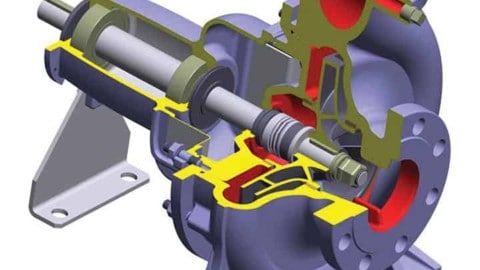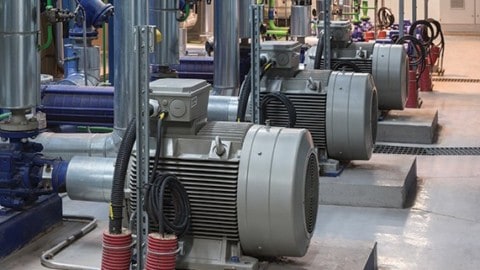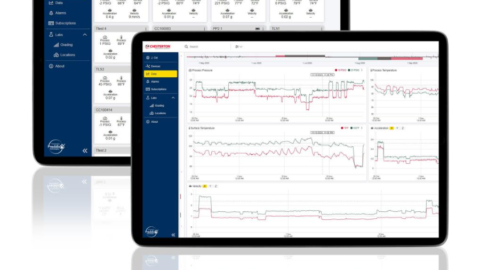By Eliza Booth, Assistant Editor, Pump Industry Magazine
While they are often forgotten, pump sealing is one of the most important aspects of pump management to ensure optimal operation and a long service life. Choosing the right sealing option for your application requires consideration of what type of pump you have, what kind of liquid you are pumping, and what environment your pumps operate in. Here, we take a look at why sealing solutions are important, and compare the pros and cons of the two main types of sealing – mechanical seals and packing gland – to help you decide which option is right for your application.
Before we get into the comparison, let’s first take a look at why seals are integral to good pumping operations. The main purpose of pump sealing is to help prevent fluid loss. The pump sealing allows the rotating shaft to enter the wet area of the pump while also preventing the pressurised fluid in the pump to escape.
To achieve this, there are two main types of sealing that are preferred by engineers: mechanical seals and gland packing. Each option has their own benefits and drawbacks, and it is up to users to consider what option is best for their application.
To achieve the best outcome and function from a sealing solution, it is integral to ensure it is installed correctly, proper maintenance is kept up, the area surrounding the seal is kept clean, and that the pump is never run dry as this can cause premature degradation of the sealing.
Now, let’s take a look at gland packing and mechanical seals in detail and explore how they work, their differences, and the
pros and cons of each method.
Gland packing
Gland packing has long been the traditional sealing solution for many industries thanks to its low upfront cost and flexibility. Gland packing utilises a braided rope-like material that is packed around the shaft of the pump. This fills the space between and prevents fluid loss from around the shaft.
It is often considered the sealing of choice for slurry pumps in applications like mining and ore processing where large equipment size, large shaft movements, and aggressive liquids often make mechanical seals the inferior economic choice.
Gland packing offers multiple benefits that make it an ideal choice for certain applications. Firstly, gland packing offers a low upfront cost and easier installation compared to mechanical seals as it does not require decoupling of drive shaft, resulting in a shorter turnaround time.
Users need to take into consideration that gland packing will degrade faster than mechanical seals due to the friction of the shaft wearing it away over time and therefore it will need to be replaced sooner. However, thanks to advancements in technology and design such as new materials, new braiding technology and advanced lubricants, newer gland packing options currently on the market are able to last longer, extending the life of your sealing.
As much as there are benefits to using gland packing as a seal, there are also negatives which need to be considered. Most critical to remember is that gland packing is not the best option for abrasive fluids or applications with dangerous liquids that need complete leakage protection.
Gland packing also wears out faster than other seal types so there needs to be adequate staff to attend to, maintain, adjust and replace it when needed. Additionally, the gland packing uses a significantly greater amount of power to operate, increasing power consumption over time and perhaps offsetting the initial low cost of installation.
Discussing your unique pumping application and specific needs with a reputable seal supplier is the best way to determine which type of seal will work best for your pump and which will economically work best in the long term.

Gland packing offers a low upfront cost and easy installation.
Gland packing
Pros
- Preferred option for aggressive fluids
- Can be adjusted while pump is in service to avoid leakage
- Low upfront cost
- Simple maintenance
- Easy to install
- Soft and flexible
Cons
- Not suitable for abrasive fluids
- Requires frequent adjustment and lubrication
- Leakage can increase as packing wears away
- Grooves often need replacing
- Constant flow of water needed to keep packing cool
- Can use more power to operate
Mechanical seals
Mechanical seals are the preferred sealing option for pump applications where leakage problems need to be avoided, especially in applications where liquid is hazardous. This is because mechanical seals are much more durable than gland packing and are able to withstand much more abrasive fluids.
Mechanical seals use several sealing points and when fitted correctly it should eliminate almost all leakage, making them the best option to avoid leaks and ensure safety from dangerous fluids. The main barrier to uptake for mechanical seals is the increased initial upfront cost compared to gland packing.
However, there are other benefits to mechanical seals which offset the higher upfront cost and can, in many instances, make it the better economical option in the long term. Unlike gland packing, mechanical seals are much more durable and have a much longer lifespan, meaning that you don’t need to constantly check on the seal, wasting staff resources.
This long lifespan is also the best option to minimise sleeve damage to the pump compared to gland packing, which requires frequent changing, meaning increased wear and tear as the pump is disassembled and put back together again. Mechanical seals also offer a lower consumption of energy which makes it ideal for constant usage.
There are also considerations to using mechanical seals, primarily when it comes to adjusting or replacing the seal. Unlike gland packing, mechanical seals are much more difficult to adjust and when it comes to replacing the seal, the pump needs to be taken out of service, requiring service downtime of the pump.
Dry runs also need to be avoided as this can cause damage to the mechanical seal. As mechanical seals are complicated pieces of equipment, it is integral to discuss which mechanical seal is suitable for your application with a supplier.
Mechanical seals
Pros
- Durable and sturdy
- Low consumption of energy means it can be run around the clock
- Almost maintenance free
- Leakage rarely a problem
- Superior option for fluids that present a safety, health, or environmental hazard
Cons
- Constant pressure and high temperatures can cause wear and tear
- Life of seal depends on the application, temperature and duration
- Relies on internal or external lubrication
- Can not be adjusted while pump is in service
- Dry runs must be avoided
Find the perfect seal for your application
Choosing the right sealing option for your application requires detailed consideration of the needs of your pump. If you’re unsure of which will be the best for your pump and budget, it is vital to discuss options with a reliable supplier or your pump manufacturer, who will be able to assess your needs and suggest the right seal for your job.
You can find a nearby supplier through notable directories such as the Pump Industry Capability Guide – accessible at https://www.pumpindustry.com.au/directory/ – where you are able to search for suppliers by product, location or application to find the right fit for you.




















